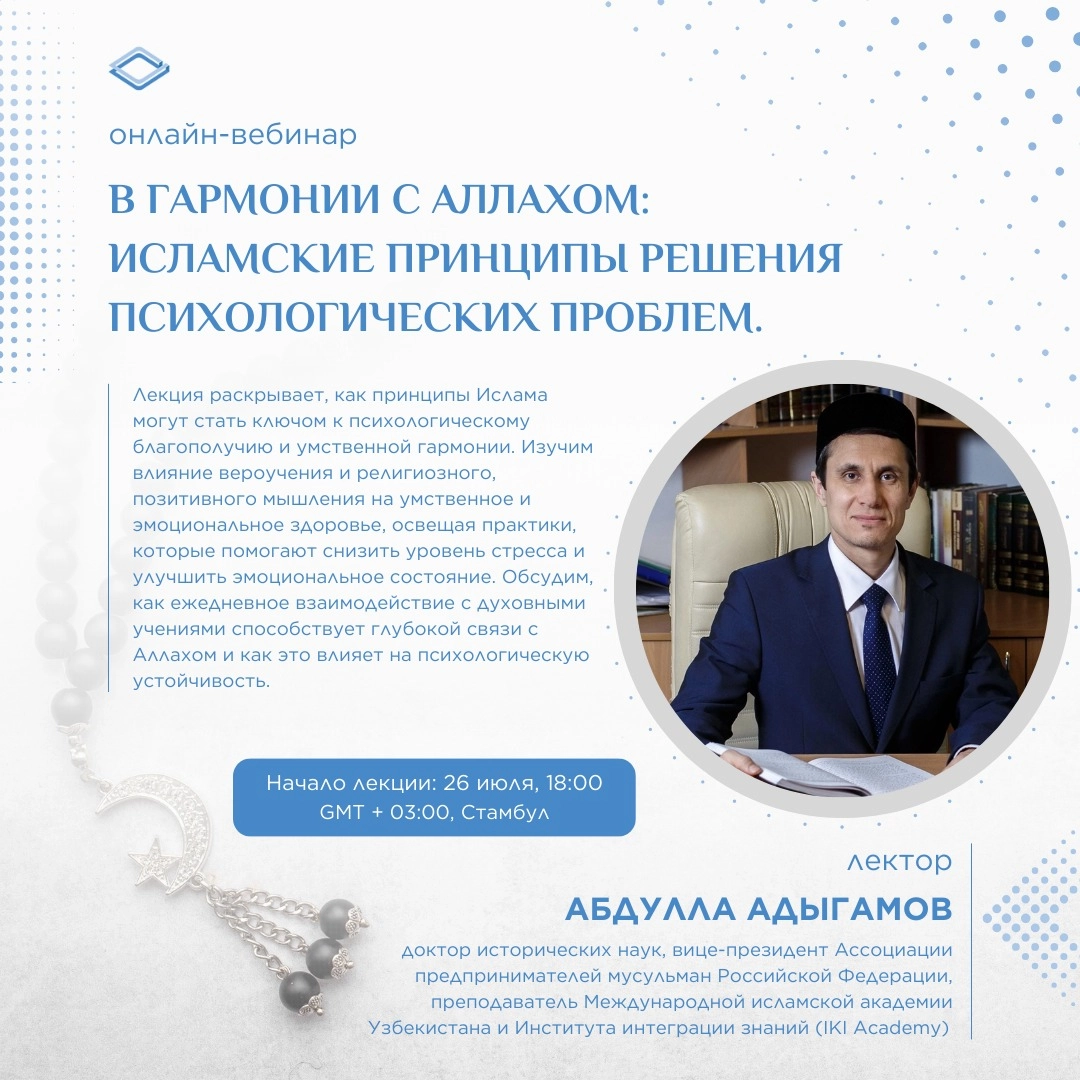As part of the IIIT Lectures Series project for the CIS countries, a lecture titled "In Harmony with Allah: Islamic Principles for Solving Psychological Problems" was held on July 26, 2024. It was conducted by Dr. Ramil (Abdullah Hazrat) Adygamov, Doctor of Historical Sciences. He currently teaches at the International Islamic Academy (Uzbekistan) and the Institute of Knowledge Integration (IKI Academy), and also serves as the Vice President of the Association of Muslim Entrepreneurs of the Russian Federation.
Dr. Adygamov discussed how his biographical background helped him understand the urgent need and social demand for psychological assistance among Muslims at present. Having also studied in a madrasa, Dr. Adygamov confirmed that students of madrasa, who later become imams, often do not broaden their horizons beyond theological issues. Without being exposed to the life beyond madrasa, students are not always able to understand and address practical issues faced by people practicing religion in secular societies.
This problem has become more noticeable in recent years with the emergence of trends in psychology and various specialists, including those with Sharia education. The topic is particularly relevant due to the varied outcomes of such specialists in psychology, which are not always successful. For example, opponents of the trend point to an increase in the number of divorces and the emergence of inappropriate boundaries in communication following psychological consultations. The polarization of society in relation to this topic is evident in the rise of the narrative that psychology is unnecessary in Islam and that psychologists are often seen as “heretics.”
Seeing this polarization and the simultaneous public demand for psychology, Abdullah Hazrat realized that, as an imam, he needed to understand this phenomenon. The lecture summarized the main points of the “Sirat” course, which focused on four areas: thinking, worship, working with the nafs, and finding balance in life. In practical terms, this means how a believer can align their spiritual and worldly life and answer the question, “Who am I in this world?” Practical Islamic psychology involves immersing in the reality of Islamic teachings and concepts. For example, Dr. Adygamov cited a successful case where a Muslim girl in the course experienced an emotional reset through immersion in the primordial state of “Misak,” cried, and as a result, started her own business.
Other successful examples mentioned included improving relationships with relatives, overcoming burnout, defeating aggression, improving business, and achieving balance in life.
Through various practices such as working with the nafs and using theological tools, the Islamic perspective on trauma is revealed. Concepts from Islamic Aqida, such as predestination and the attributes of Allah (the Merciful, the Compassionate), help transform the role of trauma into a positive and protective one. The lecture recording is available on the YouTube channel of the Institute of Knowledge Integration: https://www.youtube.com/watch?v=mStWXmiM7zw.









